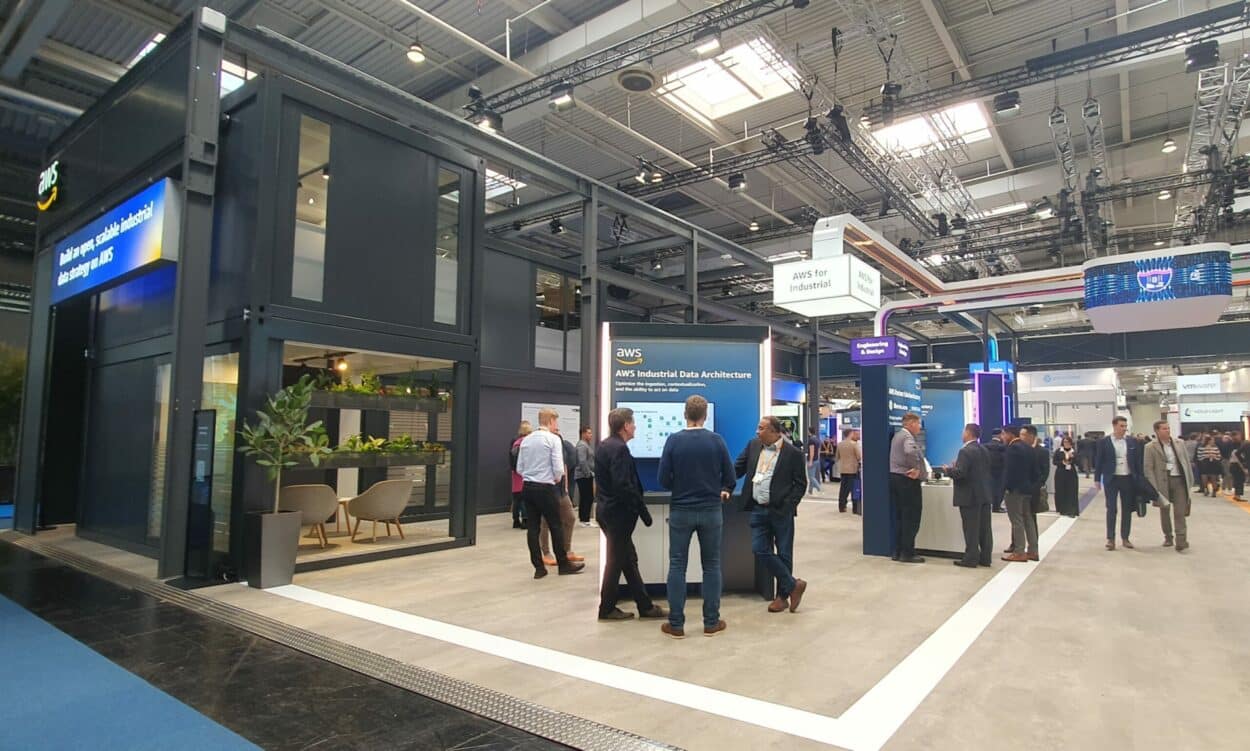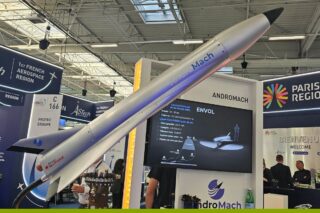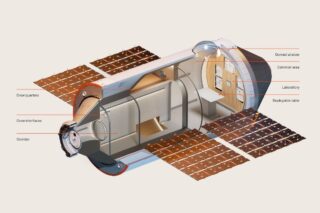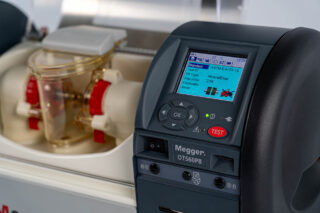The industrial sector has seen rapid growth in recent years and is now a multi-billion dollar market. Leading companies such as Nokia, Amazon, and Ericsson have taken notice of this potential and it’s no surprise that they have developed dedicated solutions to cater to this growing demand. At Hannover Messe 2023, the largest industrial trade show that takes place every year in Germany, these tech giants unveiled their latest offerings for industry.
Hannover Messe has traditionally been a platform for showcasing new industrial technologies and products. This year’s event, which took place a couple of weeks ago featured over 4,000 exhibitors and attracted over 130,000 visitors. Among the exhibitors were Amazon, Ericsson, and Nokia, who showcased their latest industrial offerings.
Nokia’s MXIE Platform Enhances Industry 4.0
Nokia, a well-known telecommunications company, has a wide range of B2B solutions, including private wireless networks designed to help businesses connect, automate, and optimize their operations.
At Hannover Messe, they demonstrated their MX Industrial Edge (MXIE) platform for building reliable and secure IIoT networks.
Enabling Industry 4.0
Stephane Daeuble, Head of Marketing for Nokia’s Enterprise Solutions Division, explains that Nokia’s main objective is to bring 5G connectivity into industries, ports, and mines, among others.
“There is a growing focus on processing data, particularly on the edge, which is crucial to Industry 4.0.”
Nokia started deploying its solutions in 2011, for a mine in Australia, which had connectivity problems. The mine used wifi, but they struggled to achieve a reliable connection due to the large distance, mobility, and coverage area.
“In 2011, we were the pioneers in realizing the potential of technology for enterprises. We understood that to cater to the expectations of businesses, we needed to be more enterprise-friendly. This led us to launch our digital automation cloud, a wireless solution that treats data locally at the edge and is managed through the cloud. Unlike our competitors, we have already moved to the edge and offer a full range of industrial devices to connect machines and workers. In contrast, most of our competitors are still providing a point product solution.”
The industrial solutions offered by Nokia are the same technologies the company provides to operators, but with specific applications for industrial use cases. The baseline for these solutions is providing reliable wireless connectivity, which is essential for Industry 4.0.
Connecting all machines is necessary for Industry 4.0, but manufacturers usually only plug their most important equipment. In a plant, a port, or a power plant, many machines and workers are not connected. Nokia provides wireless connectivity with 4G/5G to cover large areas and treat sensitive OT data in a more secure way than with wifi.
“Deploying an industrial land cable can be quite expensive, costing around 500 euros per meter. Therefore, it is not a practical solution to connect all machines via cable. But, with the advent of Industry 4.0, it has become imperative to obtain real-time data, so there is a need to connect all machines. Worker safety is also a crucial aspect that needs to be monitored, making it essential to connect the workers as well. Unlike office and carpeted spaces, wifi is not designed to handle the needs of the industrial environment. When it comes to business-critical applications such as monitoring worker safety and preventing accidents, even a slight delay in data transmission can have serious consequences. Therefore, wireless technology is the ideal solution for such applications.”
Concrete Applications
The platform enables digital twinning. By connecting machines including AGVs in factories, trucks in mining, and straddle carriers in ports, collecting data, and presenting it on a screen, the clients can have a clear understanding of what is happening in their plant or among their workers.
“By deploying our solutions, we can ensure workers have access to real-time data and alerts, which can improve their response times and reduce the likelihood of accidents. Ultimately, our goal is to make our clients’ processes and workers more efficient, sustainable, and safe.”
This solution finds applications in a wide range of industries, including energy, mining, manufacturing, and process industries such as chemical, petrochemical, and food and beverage.
“In the energy sector, we have deployed wireless solutions for wind turbines at sea in France. For mining, the focus is on ensuring the safety of workers by monitoring their health and alerting them if they become fatigued. In manufacturing, we have seen improvements in productivity when workers are connected via devices that hold data and enable instant communication. In discrete manufacturing, workers no longer need to walk back to the control center to check if machines are working correctly. This streamlined process leads to improved productivity and efficiency, saving valuable time and resources.”
Ericsson: Making Private Wireless Networks Easy to Manage, Run and Install
Ericsson, another multinational telecommunications company, has been focusing a lot on industries lately and offering solutions for industrial manufacturers. They also showcased their 5G private wireless network solution that provides reliable and high-speed connectivity for factories, ports, mines, manufacturing, and outdoor settings.
According to a spokesperson we met at the fair,
“Ericsson’s private wireless network comes in two versions: a small version that offers a speed of 3 gigabits per second and can handle up to 1,000 users, and a large version that offers a speed of 20 gigabits per second and can handle up to 20,000 users. The network has two redundant servers, ensuring that the connection remains stable and secure.”
Like Nokia, their private network runs on 5G technology. Ericsson sells the whole private network and partnered with other companies to sell the devices. The network is agnostic, meaning it is compatible with a variety of devices and can be customized to suit different industries’ needs.
Ericsson’s 5G private network has been designed for industrial security. The company has built the system according to the security preferences and needs of industries. Ericsson currently has six focus verticals: ports, airports, manufacturing, offshore, wind farms, and oil & gas. Ericsson provides all the core components of the network, including the servers and radio frequencies.
“Ericsson packages the complexity of running a private network, making it easy to manage, run, and install. The company’s design principles are based on making it easy for enterprise IT departments to manage the network, even if they do not understand the technical jargon.”
According to the company, deploying a 5G private network can take as little as two days if the circuit is already set up. If not, installation takes only two hours. Ericsson also extracts what makes sense to an IT department in an enterprise, providing only what they need to manage the network.
Amazon Web Services for Industry
Amazon, known primarily for its e-commerce and cloud computing businesses, has been expanding into the industrial sector in recent years. At Hannover Messe, the company showcased their range of industrial solutions, including its Amazon Web Services (AWS) cloud platform, which offers a variety of tools and services for the industrial sector. These tools and services help companies to improve their operational efficiency, reduce costs, and increase productivity.
Amazon Web Services (AWS) is leveraging its cloud computing expertise to offer a range of services, such as data analytics, machine learning, and IoT, to help businesses streamline their operations.
At Hannover Messe, we spoke with Steve Blackwell, Tech Lead Manufacturing for AWS. According to Blackwell, Amazon has five strategic areas of focus when it comes to the manufacturing industry: engineering and design, smart manufacturing, supply chain, small products and services, and sustainability.
Under each of these focus areas, Amazon has identified key AWS services and partner solutions that are tailored to meet the specific needs of industrial manufacturers.
“For instance, AWS IoT Core is a key service for Industrial IoT, enabling manufacturers to ingest and visualize data to improve operational efficiency. Another key offering is Amazon Monitron, a sensor, and gateway that manufacturers can purchase on the marketplace and attach to their equipment for predictive maintenance.”
The platform provides the tools and services to ensure that manufacturers have secured data, with AWS taking responsibility for cloud security.
Amazon’s industrial push is gaining momentum, with a growing number of manufacturers choosing AWS as their cloud platform of choice. Major players like GE and Volkswagen have already moved their applications onto AWS.
“SKF, for instance, is taking advantage of AWS’s machine learning capabilities and advanced analytics to gain insights from their data. Another example is Georgia Pacific, a manufacturer of paper towels, which has used the AWS platform to build advanced analytics models that can help prevent paper outages.”
As Blackwell notes, there is still much to come as Amazon explores new ways to impact the industry and help customers achieve their goals. A few weeks ago, the company released Bedrock, their own generative AI toolkit that can compete with both ChatGPT and image creator DALL-E.
Bedrock will help AWS customers create their own chatbots, generate texts and classify images based on an initial prompt. This new cloud service is aimed at companies that run their operations on Amazon’s data servers.
A Multi-Billion Dollar Market
The participation of these tech giants at the world’s leading industrial trade fair is a clear indication of their growing interest in the industrial sector. The companies are recognizing the potential of this market and are investing in developing new technologies and solutions that can help businesses improve productivity, efficiency, and reliability.
“It’s a multi-billion dollar market” is the most common sentence we heard in the aisles of the fair.
In 2022, Amazon Web Services which is one of Amazon’s strongest revenue segments generated 80 billion US dollars in net sales according to Statista.
The industrial sector is no longer just the domain of traditional manufacturing companies; it is also becoming an attractive market for tech and telco companies that were traditionally consumer-focused.
A few months ago at Mobile World Congress, our journalist Andrea Nepori noticed that the fair that was once consumer-oriented was becoming more focused on industry. In an interview, Carolina Milanesi, Principal Analyst at Creative Strategies, told him:
“The reality is that telcos generate very little revenue from consumers. While they do earn revenue from providing connectivity for phones, PCs, wearables, and XR devices, the majority of their business comes from B2B. I believe this trend will continue in the future.”
The potential of the B2B and industry market is immense, and companies like Nokia and Amazon are just the beginning. As businesses continue to embrace digital transformation, the demand for B2B and industry-focused solutions is only going to increase.











